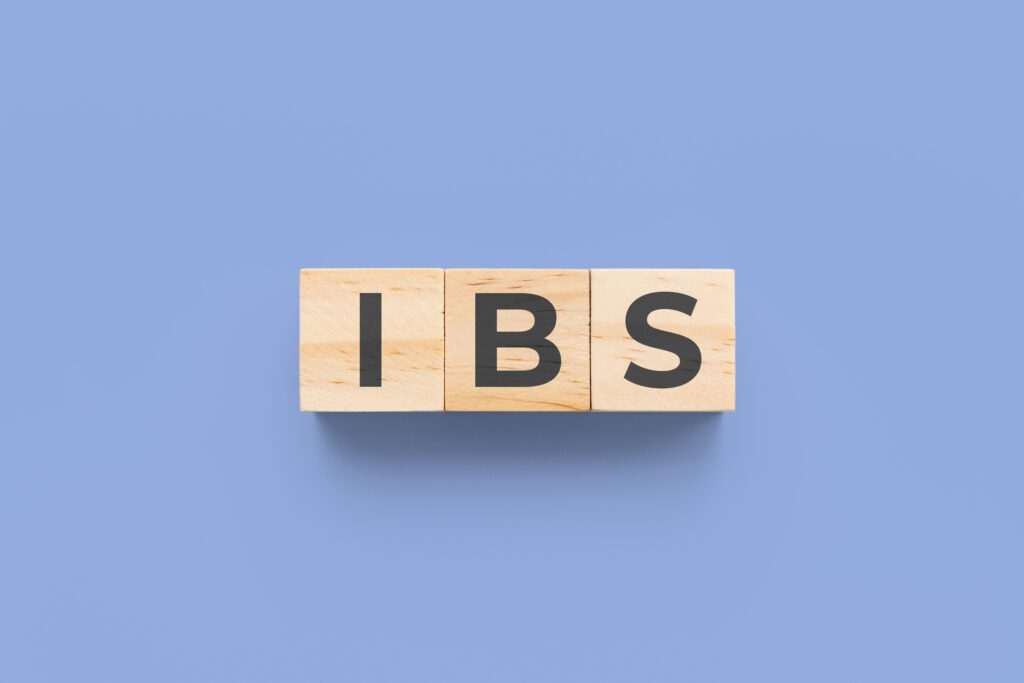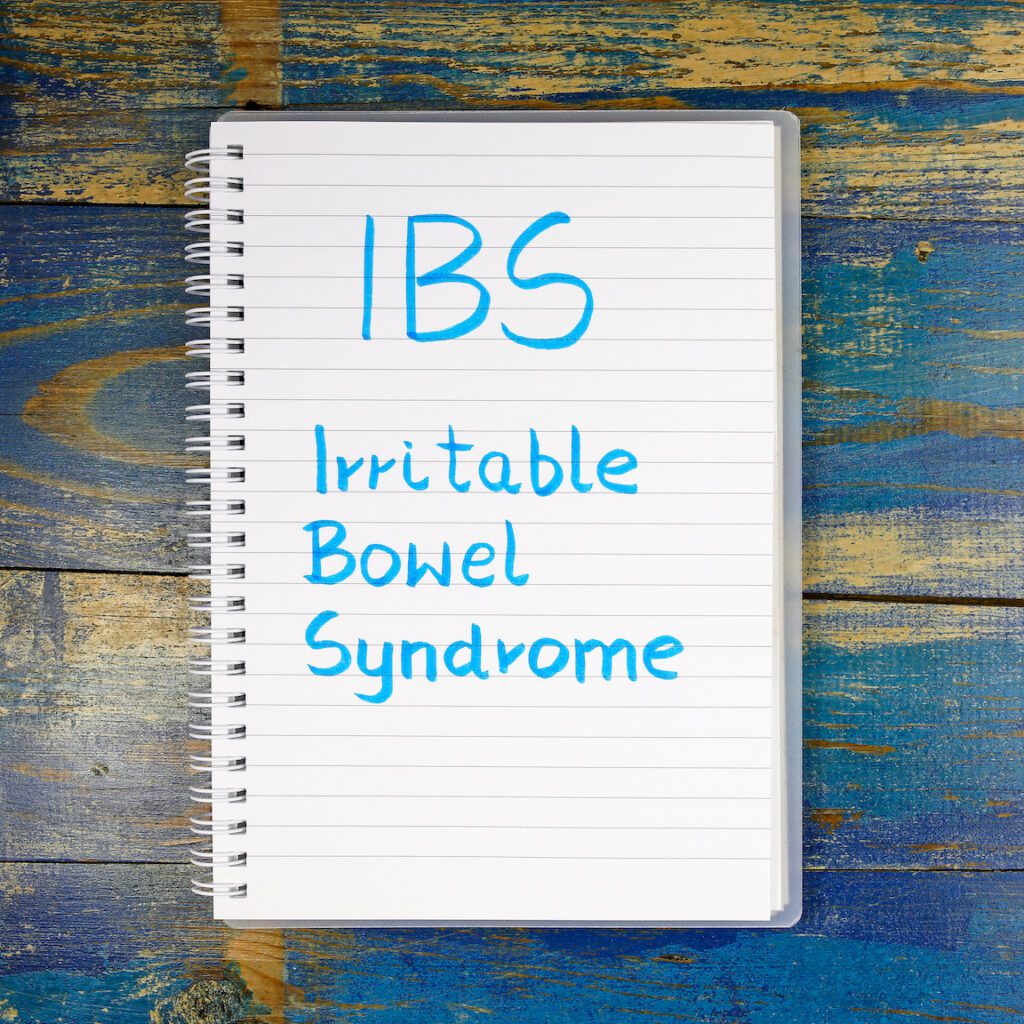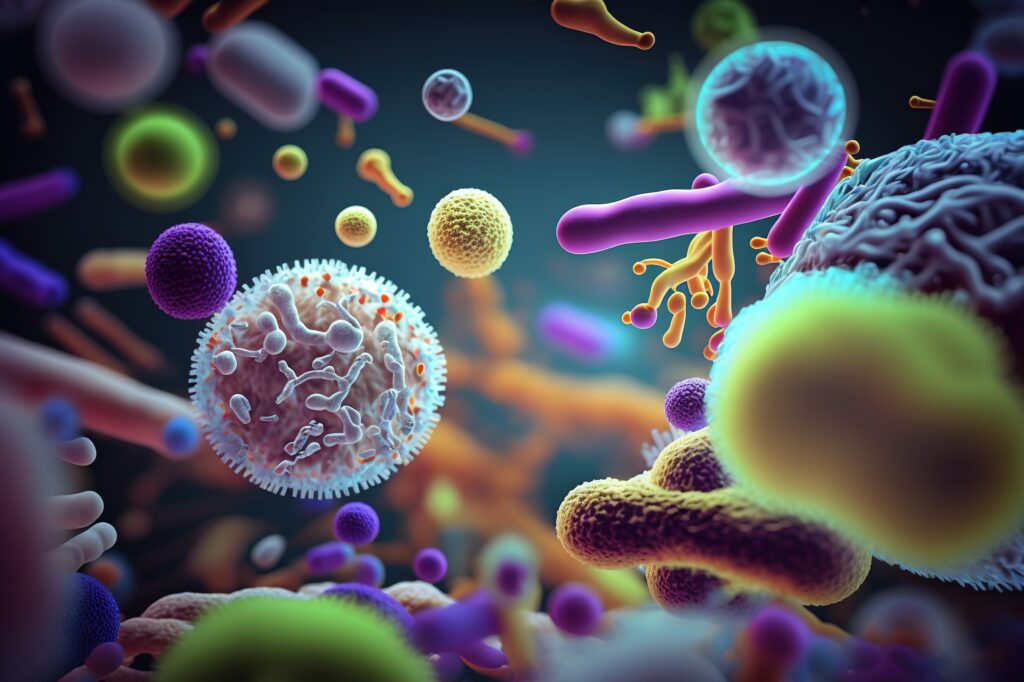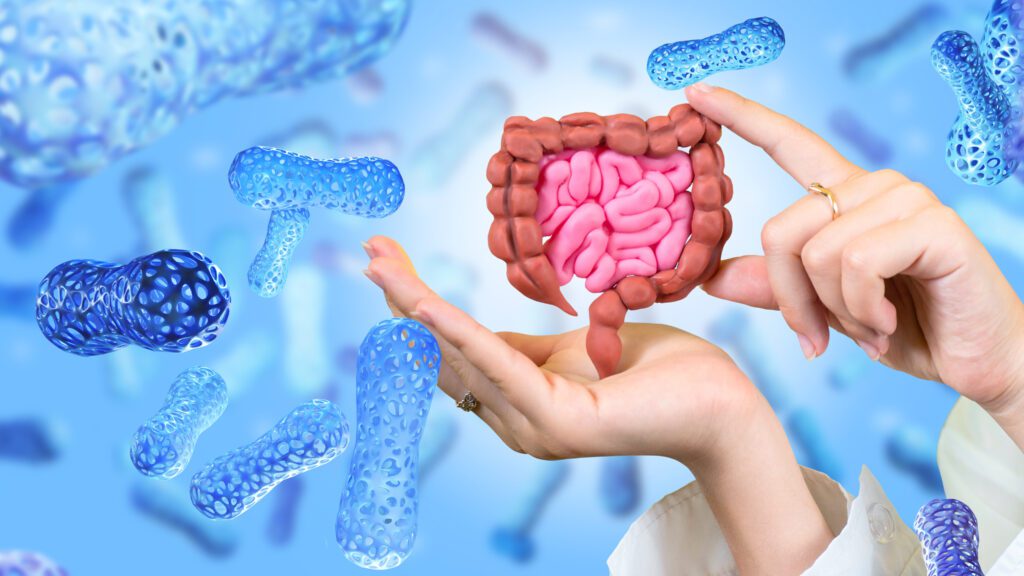
3 Possible Causes of IBS
Irritable Bowel Syndrome (IBS) is a common condition, diagnosed in somewhere between 5% and 20% of the UK population. Given that many people suffer without going to their GP, this percentage is likely to be significantly higher. It is a condition that shows up frequently in the Integral Nutrition clinic, either as the primary concern, or sitting alongside some form of inflammatory arthritis and chronic pain. In the last few months, I’ve seen a good number of IBS clients, and not one of their nutrition and lifestyle protocols are the same. This is the nature of IBS. The origins are many and varied. This blog looks at 3 possible causes of IBS.

No. 1 of 3 Possible Causes of IBS
Disturbed gut microbiome
This is a big one and has many different sides to it. Before looking at what can cause the disturbance, let’s talk first about an optimal gut microbiome.
Optimal Gut Microbiome
It is now thought that the human microbiome begins to form pre-natally. We know for certain that infants passing through the birth canal inhale microbes and thus begin their own gut colonisation from their mothers. This continues with breast feeding and as the infant begins to explore its environment.
At every stage, an optimal microbiome has a diversity of microbes, in abundant numbers
Our gut microbiome changes at different life stages. However, at every stage, an optimal microbiome has a diversity of microbes, in abundant numbers. They help with our immunity, maintain our gut barrier integrity, protect against pathogens and metabolise key nutrients required for health.

When Things Go Wrong
In modern day life, our gut microbiome is under constant attack:
Highly processed diets lack the fibres and nutrients that the bacteria require to thrive
Daily life stresses (or major acute stresses) affect our physiology, which in turn affects our bacteria’s ability to multiply. There are studies that show that early life stress is particularly associated with higher incidences of IBS in adulthood
Medications such as antibiotics, affect the diversity of bacteria, effectively destroying the good guys along with the bad. (Antibiotics can be life saving and your gut microbiome can regenerate, so panic not is these are required)
The ubiquitous use of proton pump inhibitors, such as Omeprazole, affect digestive processes. They negatively impact nutrient absorption required by your bacteria as well as by you
Parasitic infection and the associated treatment (often antibiotics) may affect the diversity and abundance of your gut microbiome
Many of the above issues can lead to what is known as a “dysbiotic” microbiome, when the good guys get crowded out by the bad. This can manifest as SIBO (Small Intestinal Microbial Overgrowth) or an over-abundance of yeasts, both of which may be behind IBS-diarrhoea.
These are just some of the ‘attacks’ that our gut microbiome face over the course of their host’s (that is us!) life.

So why might a disturbed gut microbiome be one of the 3 possible causes of IBS? Here are just a few of the possible links:
With lower diversity and abundance of bacteria in our guts, the terrain of our gut becomes compromised, causing digestive distress
We don’t absorb nutrients as well, so have less ‘fuel’ available to perform vital functions such as manufacturing digestive enzymes and stomach acid. Hence, we can get into a vicious cycle of poor digestive health
Due to mindless eating or lack of chewing, food sticks around in our digestive tracts for longer, is fermented by bacteria whilst there, causing gas, bloating, pain and diarrhoea
If our stomach acid is low (from stress or PPI use for example), then our digestive function is affected high up the chain, which trickles down to the next stage in the process
We have lowered immunity and are therefore more vulnerable to intestinal (and other) infection
Bacteria can migrate in larger than normal numbers to the small intestine, causing a condition known as SIBO (small intestinal microbial overgrowth) – which in turn causes symptoms.
No. 2 of 3 Possible Causes of IBS
Stress and the Gut-Brain Axis
There is now a general acceptance of the links between the gut and the brain – the so-called ‘gut-brain axis’. Whilst our digestive tracts have their own semi-autonomous nervous systems (the enteric nervous system), there is constant ‘talk’ between the brain and the gut.
It is clear that IBS is a stress-sensitive disorder. Scientific evidence has shown that stress can:
- lead to heightened intestinal sensitivity (cramping)
- change motility (diarrhoea or constipation – or both)
- affect the intestinal secretions
- impact on intestinal permeability (leaky gut)
- alter the gastrointestinal microbiota
This is not to say that IBS is all in your head. Far from it. But stress can lead to an increase in symptoms and for some, be a major driving factor.
No. 3 of 3 Possible Causes of IBS
Adverse Food Reactions
When your digestive terrain is compromised, food sensitivities can arise. Meals that you have previously enjoyed and tolerated start to cause trouble. You get bloated, gassy, suffer with stomach cramping and get diarrhoea or constipation. You begin to feel suspicious of everything you are eating, trying one elimination after the other.

Food sensitivities are common. However, by identifying and removing problem foods for a period of time, whilst you work on the operation of your digestive terrain, you can regain tolerance to some if not all foods. There are various ways of working out which foods are culprits. Working with a nutritional therapist will help you work out the best way for you. IgG food sensitivity testing is an option; low-FODMAP or other trial elimination diet is another. Clare is able to help you work out the best way of doing this for your circumstances and budget.
IBS is a syndrome. Syndrome conditions are tricky. Not neat and tidy, with no simple solutions. It requires time and a personalised approach to diet and lifestyle, in collaboration with a GP or other diagnosing/prescribing medical professional. Clare at Integral Nutrition is registered with the CNHC under the PSA and a member of BANT. BANT members are trained in personalised nutrition. Perfect for helping you find your solutions to disordered digestion. And to getting your life back on track.
If you would like to find out more about how Clare works with conditions such as IBS, please book a free call here. These calls allow you to share what you are experiencing in a way that feels supportive and safe and to begin your path to finding out what your possible causes of IBS are.
If you are taking a PPI and want to find out more about heartburn, take a read here and here. If stress is an issue for you, take a look at these 4 steps. To find out more about how I work with digestive issues, visit this page.
